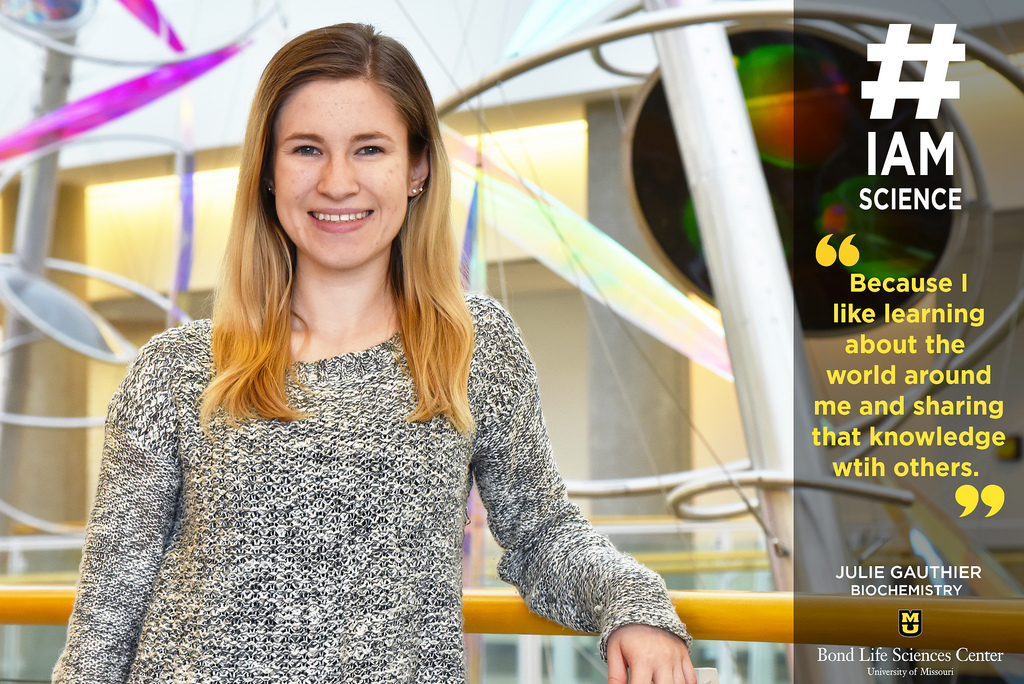Published on
By Erica Overfelt | Bond LSC
Many might agree that their sex education was not taught well in school.
This poorly taught education inspired junior Julie Gauthier to look deeper medicine and sexually transmitted diseases, and it spurred her interest in science.
“My high school had an uninformed sex education curriculum,” Gauthier said. “It was not based in science as much as I thought it should be, so when I got here I did a lot of personal research on sex health. Scientists are curious, and I was curious on the subject.”
While Gauthier’s initial interest was in science surrounding health, her current research path is quite the opposite.
“Although I do want to work in a public health field, I currently am doing biochemical plant science research,” Gauthier said.
Gauthier has been working in Dr. Jay Thelen’s lab at Bond LSC for three years where she focuses on finding ways to increase oil production in plants by studying the regulation of de novo fatty acid biosynthesis.
“Our lab studies an enzyme called acetyl-CoA carboxylase (ACCase) and other regulatory aspects of de novo fatty acid biosynthesis and triacylglycerol accumulation in oilseeds,” Gauthier said. “My current project focuses on a region of one of the subunits of ACCase that appears to interact with lipids based on its structural similarity to other lipid-binding proteins. I think that the research that my lab does is incredibly important in regards to the world’s growing population. It is becoming increasingly important to find new ways to provide resources for agriculture and human health, and boosting oil content in oilseed crops could provide solutions to issue like these.”
Even though Gauthier is studying plants, she sees a connection between them and her passion for medicine and sexual health.
“I am interested in the intersection between plants and medicine,” Gauthier said. “I believe it is important to learn as much as you can, and I enjoy having two different passions. It gives me a broader understanding of the world.”
This broader understanding has helped Gauthier find her niche, which was different from the original career dream she had coming to MU.
“I came here wanting to become a doctor,” Gauthier said. “The more I did research, the more I realized medical school is not the right path for me. I really like the medical field and want to go into that no matter what, but I’m not sure in what direction. I find myself more fulfilled working with people and infectious diseases. Currently, I want to either do public outreach or work in a lab at the Centers for Disease Control.”
Gauthier’s experience in the lab has helped both her growth as a researcher and a person.
“I have a very good environment [in my lab] to grow in many ways,” Gauthier said. “I have learned how to be a better scientist and to always be a critical thinker.”
Wherever she ends up, Gauthier wants to communicate to others her passions.
“Often times people that don’t have a scientific background ask me what I do in my lab, and I have to find a way that is correct to explain it down on a level they will understand, making it relevant to their life,” Gauthier said. “I can tell people what I’m doing in my lab and people will be like, ‘Why do I care?’, and I have to help them understand why they should.”
